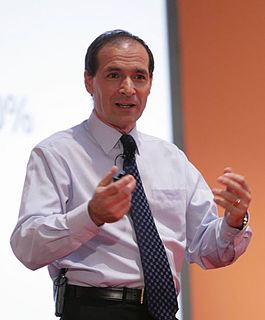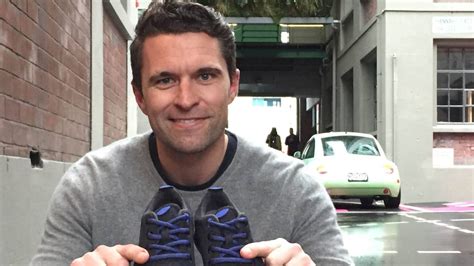A Quote by Laura Arrillaga-Andreessen
Philanthropy is often seen as society's risk capital. That means the onus is on philanthropists, nonprofit leaders and social entrepreneurs to innovate. But philanthropic innovation is not just about creating something new. It also means applying new thinking to old problems, processes and systems.
Related Quotes
Implementing any major changes to the way companies operate requires time and determination and the shift to globally integrated innovation is no exception - it calls for new capabilities to be built, changes in the structure of the innovation organization, new systems, processes and mindsets. The scope and scale of this task shouldn't prevent executives from starting down the path of change as the systemic nature of innovation activities means that every single element of change that's brought about will make a difference.
Prosperity in human society is misunderstood. The difference between a rich and poor society is the number of problems that society solves for its citizens. That means technological innovation is the source of all prosperity, but with every tech innovation, you also get disruption - ultimately, social and civic disruption.
The government also has to get the public rules right. That means putting a price on carbon, so the cleaner forms of energy become more competitive. As soon as that happens, a tidal wave of new capital, innovation and entrepreneurship will flood into the clean energy space - creating new jobs and opportunities for Americans of all walks of life. We did that for the internet, with public investments in the basic system through the Pentagon, followed by rules that encouraged innovation and competition. And that is why the internet took off in the United States first.
As we have seen in our own history, the injection of new ideas from other worlds transformed life for all, and with the establishment of new frontier communities far from the reach of the old world, new social systems also formed, more in tune with the fact that it was the individual who had to make the decisions and do the work of pioneering.
"Why is the creative entrepreneur the riskiest type to be?" I asked. "Because being creative means you are often a pioneer. It is easy to copy a successful and proven product. It is also less risky. If you learn to innovate, create, or invent your way to success, you are an entrepreneur creating new value rather than an entrepreneur who wins by copying."
But innovation is more than a new method. It is a new view of the universe, as one of risk rather than of chance or of certainty. It is a new view of man's role in the universe; he creates order by taking risks. And this means that innovation, rather than being an assertion of human power, is an acceptance of human responsibility.
By all indications, American business leaders are more adept at creating business strategies than they are skilled at human capital management. American entrepreneurs are world-beaters when it comes to creating new businesses, and corporate managers are adept at using the latest marketing, financial, and technological practices.
More and more, leadership, whether it's profit or nonprofit, is about recruiting and keeping talented people. That's the biggest challenge. Yes, you've got to create systems that will enable people easily to innovate continuously; you've got to be a system-builder. But finding and keeping geeks and shrinks is the biggest challenge. That means leaders have got to be salespeople, they've got to be recruiters, and they've got to be actively able to understand and keep the talent they have. Leadership is courtship. That's what it's becoming.
How can you communicate your thoughts or demonstrate your hypotheses by conventional means when all the values and standards that you want to challenge are built into those means? Science and new technology today like to declare that they encourage 'lateral thinking,' new ways of seeing and putting data together - but all systems have an inbuilt resistance to what has not been programmed into them through the premises on which their rules are based.
We need to think about what cooking is, what context it takes place in and what its relationship to the world of art is. If there were criticisms of my presence at Documenta, that's a good thing because it means we were doing something new. Your mission in creating something artistic is to produce something new and polemical.



































